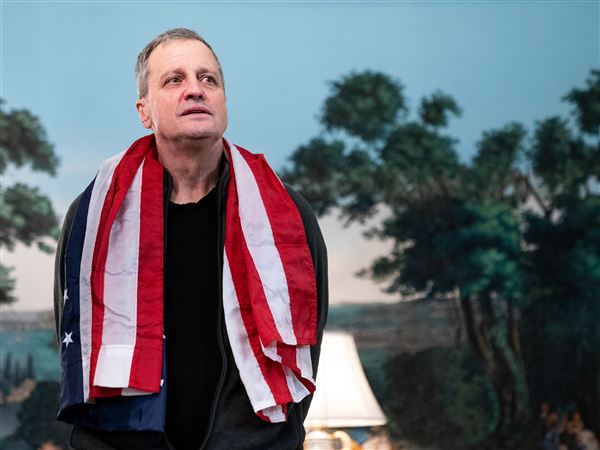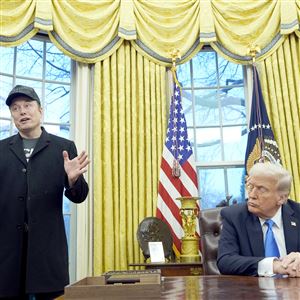Americans will elect a new president in November. That president will face many challenges, none more dangerous than the chaos in the Middle East. Experiences in Iraq and Afghanistan have taught us we cannot manage the region’s crises without partners or by military means alone.
There are wars in Syria, Iraq, Libya and Yemen. Newspapers report never-ending tales of terrorism, refugees and suffering. But one issue that is little discussed this election season, even though it long dominated the national security landscape, is the prospect of an Iranian nuclear weapon.
We do not talk about it much because it is no longer a threat. Iran has shipped out 98 percent of its stockpile of enriched uranium, reduced its centrifuge stockpile by two-thirds and is under the most rigorous and intrusive system of nuclear inspection ever devised. The United States, Britain, France, Germany, Russia and China removed the single most deadly threat to the region by negotiating a deal to lift economic sanctions on Iran in exchange for Iran giving up its nuclear weapons program. They remain committed to ensuring that Iran complies with its obligations. The many problems we face today would all be worse if Iran possessed nuclear weapons.
Iran’s size, strategic location and military and economic capabilities make it a pivotal actor in the Middle East. No issue of importance can be settled without Iran’s involvement, any more than the region’s crises can be managed absent the contributions of key Arab states, Russia, Israel or the Europeans. Iran must be persuaded to contribute to peace and stability, but the past four decades have made clear that Iran cannot be bullied. No amount of pressure or sanctions, no matter how severe, will make it surrender. On the other hand, Iran’s leaders, while hard-nosed, know how to negotiate.
Iran still poses serious challenges. Its government pursues a variety of policies that run counter to American interests and values. It supports Hezbollah and opposes Israel. It is allied with Syria’s President Assad, who has used chemical weapons against his own people. At home, it has suppressed the political aspirations of its citizens.
How then, should we deal with Iran?
The year-old nuclear agreement with Iran shows that it is possible to advance our national security through diplomacy while making clear to Iran’s leaders that we will maintain our defenses and support our allies in the region. The agreement shows that sanctions are a means not an end, and that Washington can shrewdly deploy sanctions relief to achieve its objectives. The agreement shows that Iran can change its behavior if it sees that doing so is in its interests.
As tough as the issues are, the United States and Iran do have some common interests. Both countries want a way out of the bloody quagmire in Syria. Both seek the defeat of the so-called Islamic State. Both want to strengthen the government in Kabul. And to achieve these objectives, both need to more directly engage with one another. The nuclear agreement has given them new diplomatic options.
The agreement is one year old, and the good news is that Iran has complied strictly with its commitments. The bad news: Iranian leaders are increasingly suspicious of the U.S. and believe it has slow-walked sanctions relief.
Still, momentum can be restored if the two countries address issues of mutual concern. Remember, the United States has found common ground with bitter adversaries in the past — the former Soviet Union and Moammar Gadhafi’s Libya, to name two. And the nuclear agreement shows that we can do so even with a nation such as Iran, from which we have been deeply alienated for decades.
The alternative — ripping up the nuclear agreement, going it alone without our allies and pursuing a policy of confrontation — would only compound our problems and make a troubled region even more dangerous. Iran does many objectionable things, but its doing them would be immeasurably worse if it had nuclear weapons.
Diplomacy proved its value in removing the Iranian nuclear threat. Our next administration would be wise to explore a similar path to deal with the other crises in the Middle East.
Jim Walsh is a research associate at MIT’s Security Studies Program and a contributor to NPR. Frank G. Wisner, an international affairs adviser at the law firm Squire Patton Boggs, is a former U.S. ambassador. On Sept. 14, they will discuss the Iran nuclear deal, along with Shimon Mercer-Wood of the Consulate General of Israel in New York, at a World Affairs Council of Pittsburgh luncheon event (www.worldpittsburgh.org).
First Published: September 13, 2016, 7:20 p.m.














